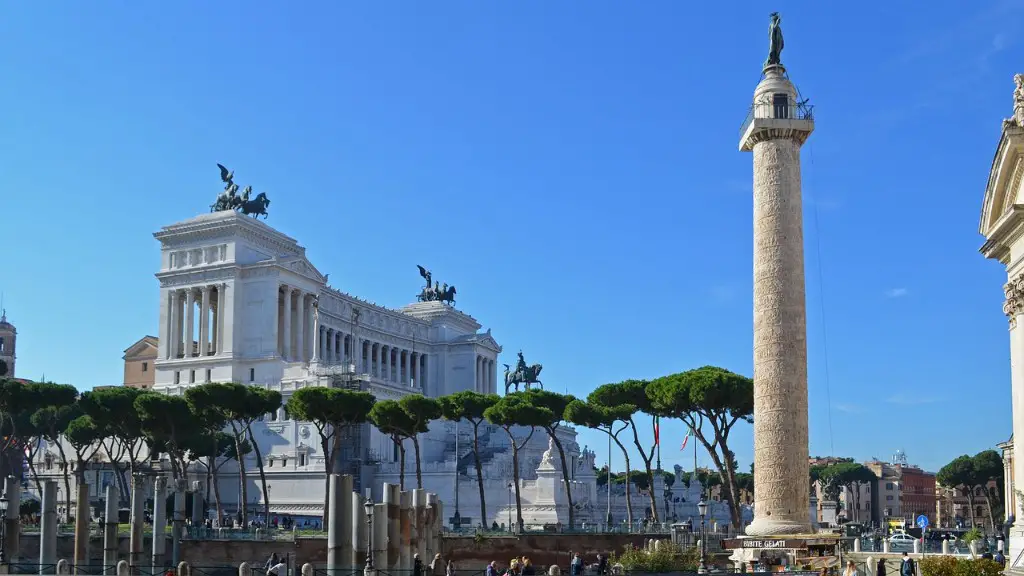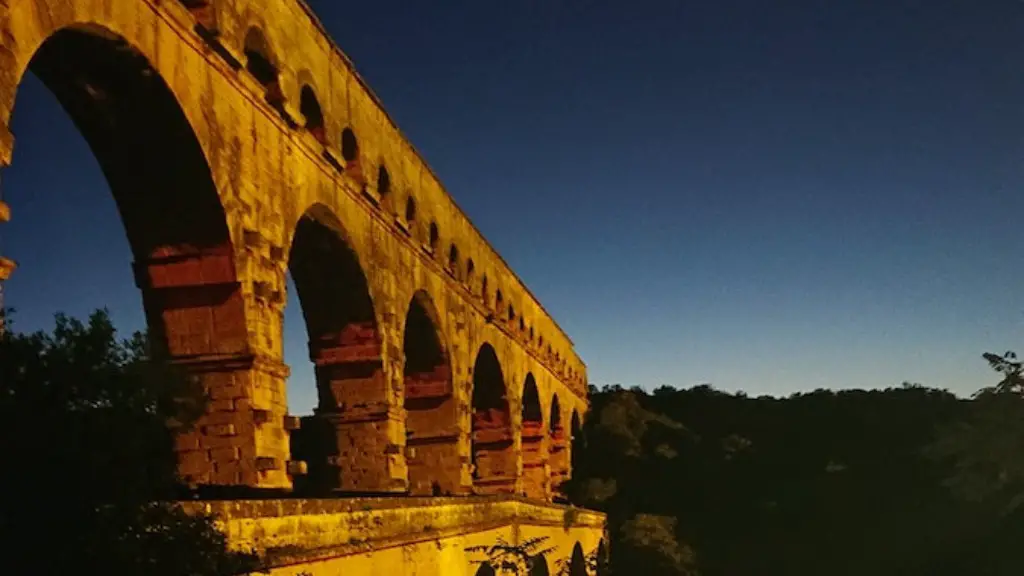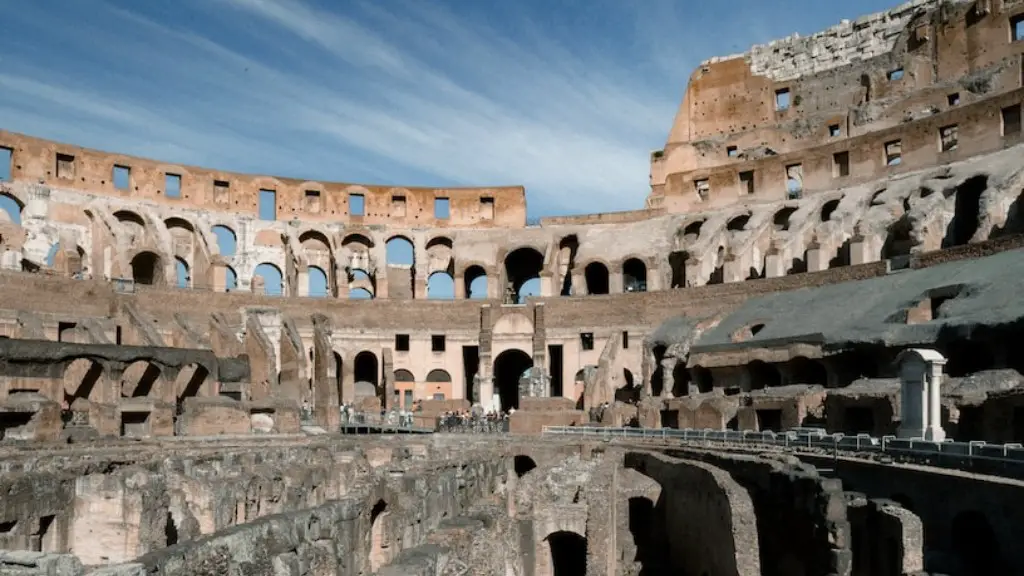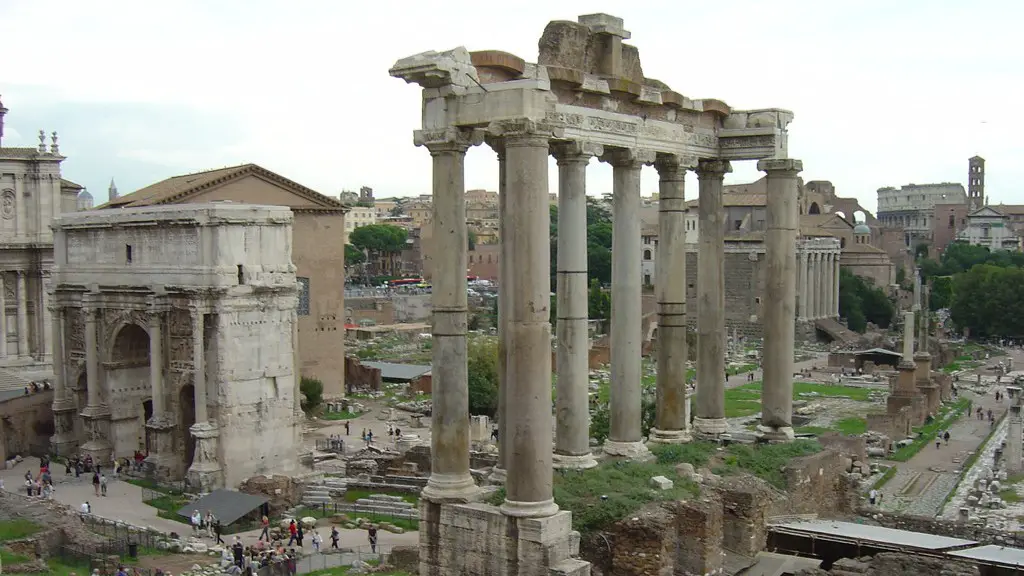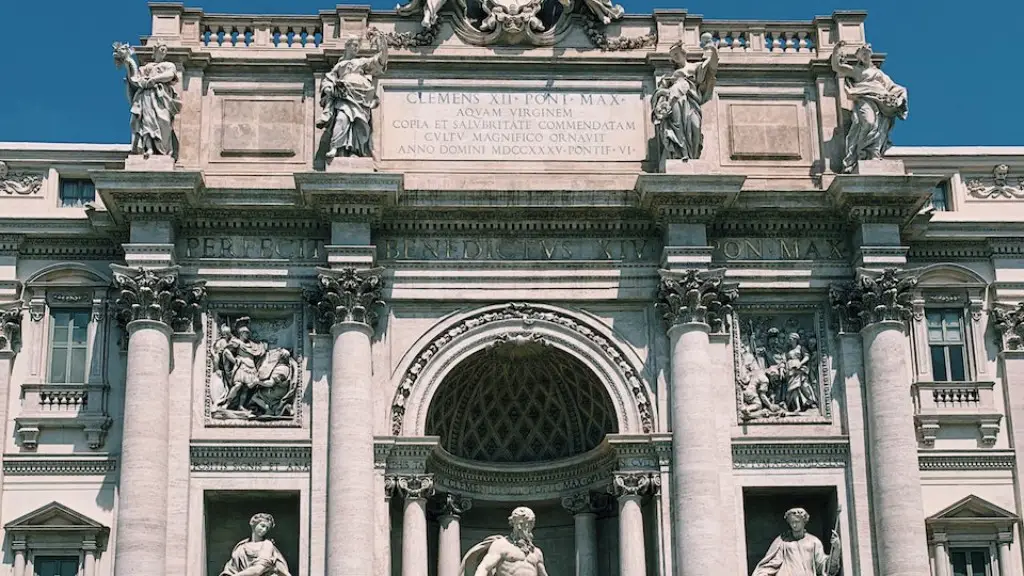Ancient Greece and Ancient Rome are two of the most influential and renowned civilizations in history. Both of these civilizations had a major impact on the development of western culture and much of what we today take for granted. The similarities between the two civilizations have been noted and discussed by ancient historians, classicists, and scholars worldwide.
The most obvious similarity between Ancient Greece and Ancient Rome is their shared Greco-Roman culture which encompassed them both. This culture was the backdrop against which both of these incredible cultures flourished. This culture included a shared belief system, language, religion, art, architecture, and politics.
The political systems of Ancient Greece and Ancient Rome were both based on the same principles, although the form of government differed between the two civilizations. Ancient Greece was a democratic republic, with citizens directly participating in the government, while Ancient Rome was a monarchy, with an emperor ruling over the citizens.
The Greek and Roman civilizations were also heavily influenced by both, their beliefs and ideologies. Both Greek and Roman mythology played a major role in both societies. Ancient Greece was heavily influenced by the pantheon of gods and goddesses who were frequently featured in artwork and literature. Ancient Rome were heavily influenced by their pantheon, including the worship of the famous Roman gods, Jupiter, Apollo and Mars.
The similarity between Ancient Greece and Ancient Rome can also be seen in the architecture of both cultures. Both cities had grand monuments, public baths, and stadiums which were constructed according to Ancient Greek or Roman styles and designs. The Parthenon in Athens, Greece, and the Colosseum in Rome, Italy, are examples of these architectural similarities between the two civilizations.
The realm of art was just as influential in both Ancient Greece and Ancient Rome. Much of the artwork created during the time of both civilizations were inspired from Roman mythology and Greek mythology. Sculptures of gods and goddesses and mosaics were two forms of artwork that were popular with both cultures.
In both Ancient Greece and Ancient Rome, philosophical and scientific thought were highly valued, and both societies produced some of the world’s most renowned intellectuals. Greek philosophers like Socrates, Plato and Aristotle, and Roman philosophers like Cicero, Epicurus and Seneca, had major impacts on intellectual thought, and their works and writings have had an immense influence on western culture today. Similarly, doctors such as Hippocrates and Galen, mathematicians like Euclid and Pythagoras, and scientists like Archimedes and Strabo, were highly acclaimed and widely studied by both societies.
The Role Of Religion
Religion also played an important role in the societies of both Ancient Greece and Ancient Rome. Greek religion was based upon the pantheon of gods, and Ancient Greeks believed that the gods and goddesses played a role in their lives, from the smallest every day matters to the larger issues of government and justice. Similarly, Ancient Roman religion was based on the pantheon of gods, and was closely linked to the government and society.
The beliefs and practices of the Ancient Roman religion were closely fused with government, and many of the public rituals, such as offering sacrifices to the gods, were tightly integrated with politics and state affairs. Religion was also closely linked to social customs, and Ancient Roman society was strongly ritualized, with festivals and feasts held in honor of the gods such as Saturnalia and the Ludi.
Both Ancient Greece and Ancient Rome shared a complex system of symbolism and symbolism played an important role in both cultures. From the gods and goddesses to the animals, the symbols were often an intrinsic part of both societies. From the Olympian gods and goddesses to the mythological creatures such as the Minotaur and Pegasus, symbols were an integral part of Ancient Greek and Roman culture.
Ancient Greece and Ancient Rome were both home to some of the world’s most renowned authors. Homer, the most famous of the Greeks, wrote the epics ‘The Iliad’ and ‘The Odyssey’, while the Roman poet Virgil wrote his masterwork ‘The Aeneid’. Ancient Greek and Roman authors wrote plays and poetry, and the works of Sophocles, Aristophanes and Ovid have been studied and enjoyed for centuries.
The plays of both Ancient Greece and Ancient Rome drew heavily on myth and legend, and incorporated elements of comedy and drama. Ancient Greek plays often focused on themes of tragedy and suffering, while the Roman plays often featured a strong emphasis on comedy. Both societies valued theatre and the arts, and these forms of entertainment brought the societies together, bringing both cultures closer.
The language of both Ancient Greece and Ancient Rome were also heavily intertwined. The language of the Ancient Greeks was unique, and the language of the Ancient Romans was heavily influenced by their Greek neighbours. The language of the Ancient Romans was heavily influenced by their Latin-speaking neighbours and much of the Latin language was based on Ancient Greek roots.
The Legacy Of Ancient Greece And Ancient Rome
The legacy of both Ancient Greece and Ancient Rome can still be felt today in western culture. Much of modern law, philosophy, politics and religion are heavily influenced by the values and beliefs of the Ancient Greeks and Ancient Romans. From architecture, art and theatre to language, politics and the sciences, the legacy of these two influential civilizations lives on in western culture.
The impact that the Ancient Greeks and Ancient Romans had on western culture can be seen in many aspects of our day-to-day lives, and their legacy and influence live on today. We can still look to ancient Greece and Rome to learn and appreciate the values and beliefs of these two societies, and to understand better our own society and culture today.
The Relationship Between Ancient Greece And Ancient Rome
Throughout history, Ancient Greece and Ancient Rome were two civilizations which were linked and intertwined, despite their differences. The relationship between the two civilizations was based both on cultural and political commonalities, as well as on the consequences of military and economic interaction. While the two civilizations developed separately, there were several mutual influences, and examples of cultural exchange.
The Greek culture was a great influence on the Roman culture, especially in the areas of literature, philosophy and politics. Many of t he Greek authors were widely read and studied by the Romans, and their writings were a major source of inspiration for the Roman authors and philosophers. Similarly, the Roman culture, particularly the Roman political system, was a great influence on the Greeks, and many of the Greeks adopted and adapted Roman laws, reforms and systems.
In addition to this cultural exchange, the political and military relationship between the two civilizations was also important. The Greeks, and later the Romans, fought several wars with each other, and the Greeks were heavily influenced by the Romans. Eventually, the Roman Empire conquered the Greeks, and the Roman influence in Greek politics and culture further increased.
The Influence Of Ancient Greece And Ancient Rome On Modern Society
The influence of Ancient Greece and Ancient Rome are still being felt today in modern western societies. From philosophy, literature and science to law, politics and art, the contributions of these two influential civilizations permeate our culture and lives.
Today, our legal systems are based upon the Roman model, and much of our current understanding of democracy and politics can be traced back to Ancient Greece. Philosophy, literature and science have also been heavily influenced by both the Greeks and Romans, and much of our knowledge in these areas still comes from the works of these two societies.
The influence of Ancient Greece and Rome can be seen in our art and architecture, both in the forms and styles we use, as in many of the iconic buildings and monuments we still visit today. Furthermore, our language is largely based upon Latin and Greek roots, and the words and phrases we use are still heavily influenced by the ancient languages.
Conclusion
The similarities between Ancient Greece and Ancient Rome are many, and their influence on modern western societies is immense. From culture and religion to art, architecture and language, the Greeks and Romans have left us with an impressive legacy which has greatly impacted our current lives and societies.
